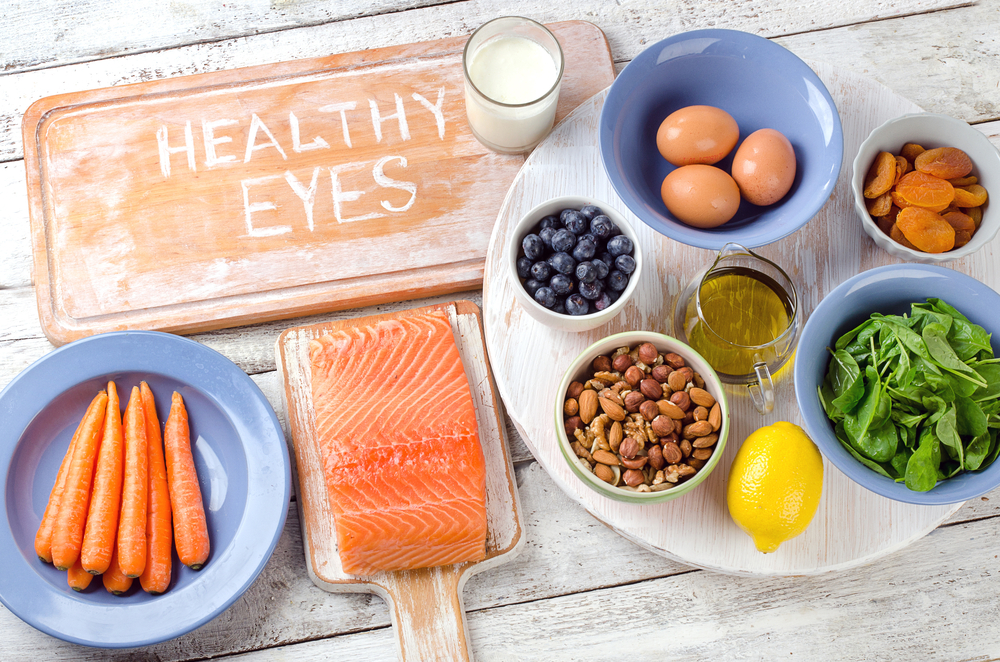Our eyes are our windows to the world. Healthy eyes and vision make it possible for us to see and enjoy the world around us. When we think of what it takes to keep our body healthy, things like nutrition and exercise probably come to our mind. But do you ever think about what does it take to have a healthy vision? Or what does it mean to have healthy eyes?
What Makes Eyes Healthy
Healthy eyes are eyes that can see clearly and have no visible irritation or disease. But, even though we think we are seeing our best and our eyes don’t have any noticeable symptoms of the disease, it may not be as healthy as it could be. The human brain is amazingly great at covering up slight vision problems. For example, your brain might compensate for a vision problem with your left eye by making you use your right eye more. This is the reason why having an eye care exam is so important, especially for young children who cannot even understand the difference in having blurry or clear vision.
When an eye doctor looks into your eyes, he or she can examine if you are seeing your best and if your eyes are free of the disease that can cause vision loss over time. During an eye exam, an eye doctor performs several eye assessments to determine if the major parts of your eyes are functioning together correctly and efficiently enough to assure you are seeing the world with the best possible vision.

What Influences Eye Health?
Taking a good care of your eyes will help to keep them healthy and also help to maintain good vision through the years. As you age, your eyes and vision will change. It is very important to receive professional eye care treatment, including dilated eye exams, to diagnose eye disease early to prevent your vision loss. Taking good care of your eyes also includes protecting your eyes from harmful UV rays and eating healthy nutritious foods. Omega-3s and Lutein helps protect against eye problems or disease. Your family history also determines your eye health in some unique ways. Having a family history of any eye disease puts you at higher risk for developing the disease. So, if you are experiencing any symptoms of eye problem, please visit your eye doctor. And you should also make sure your eye doctor is aware of your complete medical history.
Many of the bacteria, parasites, viruses, and fungi that invade the human body are also capable of attacking the surface or interior of the eye. Obviously, with so many possible causes, the symptoms of an eye infection can vary a lot. Some of the common symptoms of eye infection can be defined here. So, if you are experiencing any of these symptoms please make sure to visit your eye doctor for your eye infection treatment.
Common symptoms of eye infections include:
- Redness and itching
- Viral conjunctivitis: discharge is usually watery or mucous-like
- Discharge
- Bacterial conjunctivitis: discharge is thick and can be white, yellow, or green
- Crusting over of the eyelid
- Feels like there is sand in the eye
Are you eating the foods that are best for your eyes?
There’s much more to eye nutrition than just carrots. Learn here which food can boost your eye health and help protect against vision-threatening diseases. Eating nutritious and healthy food is good for your whole body, especially for your eyes!
- Fish
- Eggs
- Leafy Greens
- Whole Grains
- Brussels Sprouts
- Kale, Collard Greens, and Spinach
- Corn
- Pistachios
- Avocado
- Goji berries
- Kiwi
- Orange peppers
- Grapes
- Squash (zucchini)
- Orange juice
Also Read: When cataract clouds your vision
Eye Care Tips
You need to get plenty of rest, exercise, and wear protective eyewear that shields you from the damaging rays of the sun. You can also consult with your eye doctor about taking a formulation which provides plenty of lutein, zeaxanthin, and other key nutrients that support your eye health, especially if you do not eat many of the foods listed above.


